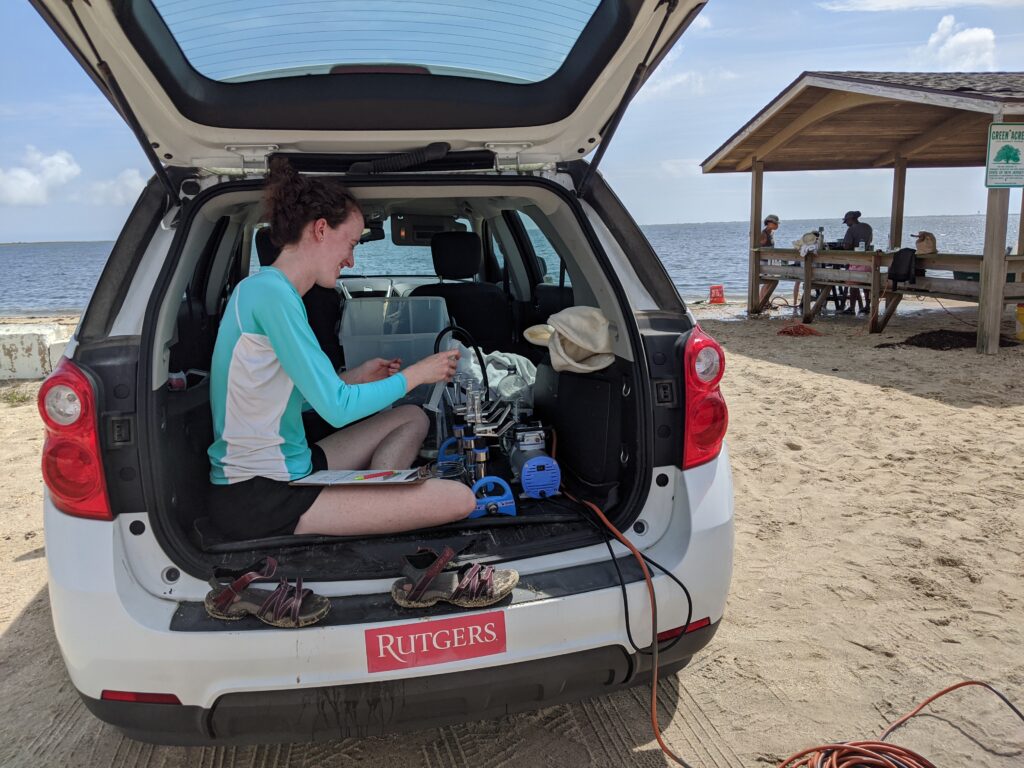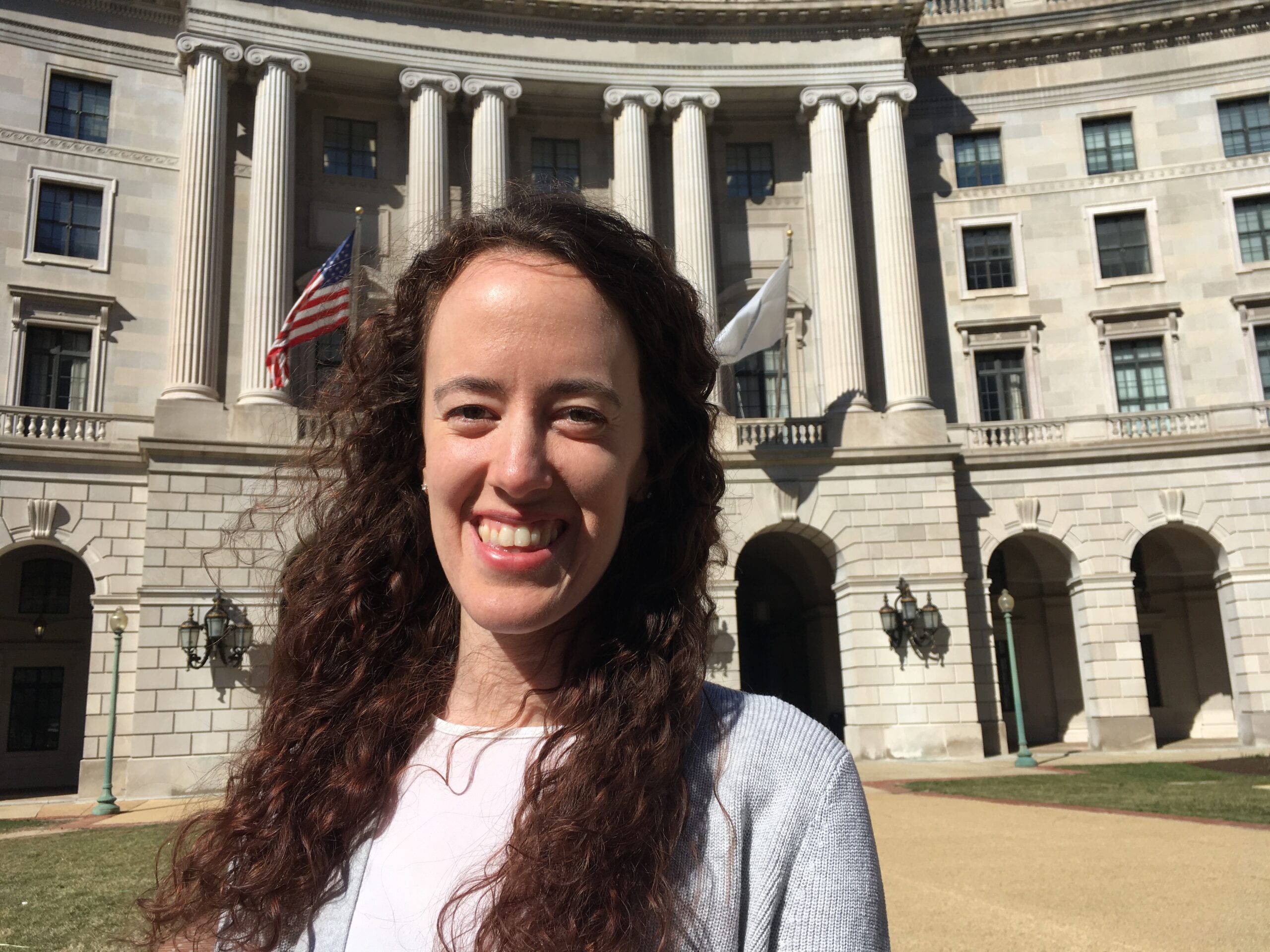My name is Janine Barr and I am a second year graduate student pursuing a Master’s in Oceanography with Dr. Daphne Munroe as my advisor. I am based at the Haskin Shellfish Research Lab (HSRL) and I study the ecosystem services provided by oyster aquaculture in the Delaware Bay region.

My interest in studying oceanography at Rutgers stems from my experiences in environmental policy. My first policy experience occurred in the summer of 2014 when I interned for the US Department of State’s Bureau of Oceans and International Environmental and Scientific Affairs. Then, after graduating from Gettysburg College in 2015, I worked for three years as an ORISE Research Fellow for the US Environmental Protection Agency’s Office of Water. I enjoyed the work immensely which solidified my interest in pursuing a career in marine policy. Furthermore, in these roles I learned how important science and site-specific data are in creating implementable and protective environmental policies for the ocean. As a result, I felt that to be a more effective marine policymaker, I needed to enhance my understanding of the scientific field itself by attending graduate school. With almost a year and a half of my master’s completed, I have learned a great deal and look forward to learning more!

My research at Rutgers focuses on quantifying the water quality benefits provided by oyster farms in New Jersey and Delaware. Specifically, I am estimating farm-level year-round filtration and nitrogen removal occurring at three oyster farms to quantify local farm contributions to improved water quality. This involves bringing a flow-through filtration chamber to each farm site, placing local oysters in the chamber, and collecting oyster biodeposits for processing in the lab. We visit each farm site multiple times throughout the year to capture seasonal changes in oyster filtration behavior. We also expose some farmed oysters to low-salinity conditions to see how climate change stressors (i.e., increased frequency and intensity of precipitation events) may alter oysters’ ability to provide water quality benefits. My hope is that these results could be used to inform the development of nutrient management programs in the Delaware Bay region similar to those in the Chesapeake Bay and elsewhere in the world.

Rutgers has been a great place to attend graduate school. HSRL, for example, has the equipment, expertise, and long-standing relationships with the shellfish industry which make my thesis possible. Rutgers also has fostered my communication skills through the Coastal Climate Risk and Resilience (C2R2) program. The C2R2 program trains graduate students from across the University to build skills needed to address real-world resilience issues in the face of climate change. In these ways, Rutgers has helped me grow academically and professionally.
Outside of work, I enjoy hanging out (virtually!) with friends, finding the best Taylor ham breakfast sandwich in Jersey, and doing yoga. Feel free to reach out to me at jmb883@hsrl.rutgers.edu with any questions you may have!

